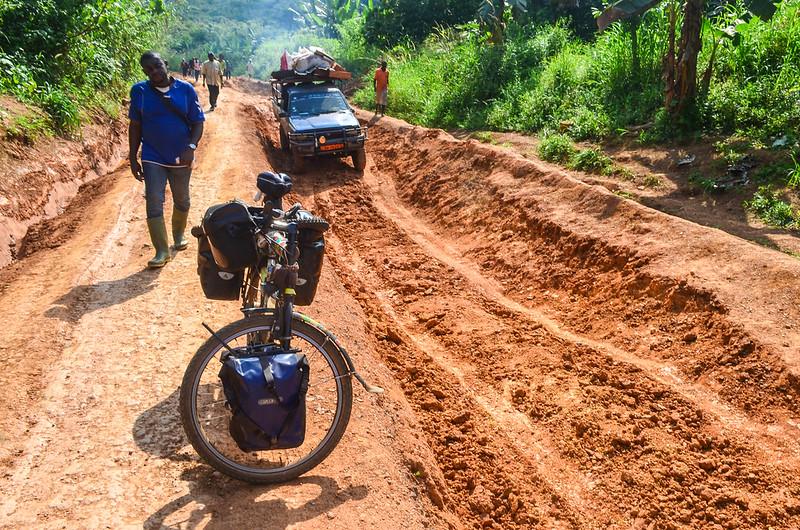If making ends meet, that is to say being able to honestly and daily satisfy one's primary needs is difficult, the deplorable quality of much of the transport infrastructure in Cameroon makes this daily challenge even more complex, especially for producers, sellers and resellers of market gardening products. When getting your products to the points of sale is like a daily ordeal, there is enough to get in motion against those who are responsible for managing the transport system in the city and on the outskirts.
The numerous notable efforts undertaken by the State with the aim of increasing the number of kilometres of paved roads and improving the quality of urban roads via the decentralized territorial communities leave something to be desired. The roads network in Cameroon according to a 2021 report is estimated at more than one hundred and twenty one thousand eight hundred and eighty four point seven kilometers (121,884.7 km). If the road infrastructure projects progress as it should, the total kilometers of paved roads in the country will amount to more than ten thousand kilometres (10,000 km) in 2024; In other words, sixty-four years after gaining independence in 1960, the total number of paved surfaces would correspond to a percentage greater than or equal to eight point twenty percent ( ≥ 8.20%). And with regard to urban roads, their state of disrepair and their virtual non-existence due to galloping demography and the inability of a certain class of the population to afford housing that meets the requirements of a real urban master plan have accentuated the problem of anarchic constructions and suffice to show how poor the country is in terms of quality transport infrastructure.
The quality of transport infrastructure in Cameroon
To justify the lack of quality infrastructure in Cameroon, official sources mention the problem of financing and the problem of security in several regions. If these reasons are valid, they still raise several questions: Are we not paying the price for the multiple financial embezzlements that have followed one another during our history? Is the pretext of recent security problems (2014 [2016]-2023…) not the way to hide our failures and put our efforts forward in order to make the public believe that all is well without however admitting the fact that we have a share of responsibility in the slowness and the disuse of the development projects? Do security problems justify the fact that most regions of Cameroon remain landlocked after several decades?
Also read : Decentralization : when will the full transfer of powers and resources to the decentralized territorial communities
People have goods and cannot sell them easily, not because there are no roads, but because there are no quality roads. If there are no quality roads because of a financing problem which may be debatable, this does not prevent finding way to alleviate the pain of users through adaptation measures that vary with the seasons. We are not saying that the decentralized local authorities do not do their job or do not do it well. We just want to suggest lines of thought with a view to implementing adaptation measures while waiting for more substantial funding. How to ensure that in the rainy season for example, vehicles are not stuck in the mud? How to ensure almost fluid traffic despite the absence of bitumen? An additional human investment is necessary to allow a movement of people and goods that is certainly archaic but useful. We cannot continue to afford to wait until a road or track is impassable to consider renovations and take urgent action only when people die.

